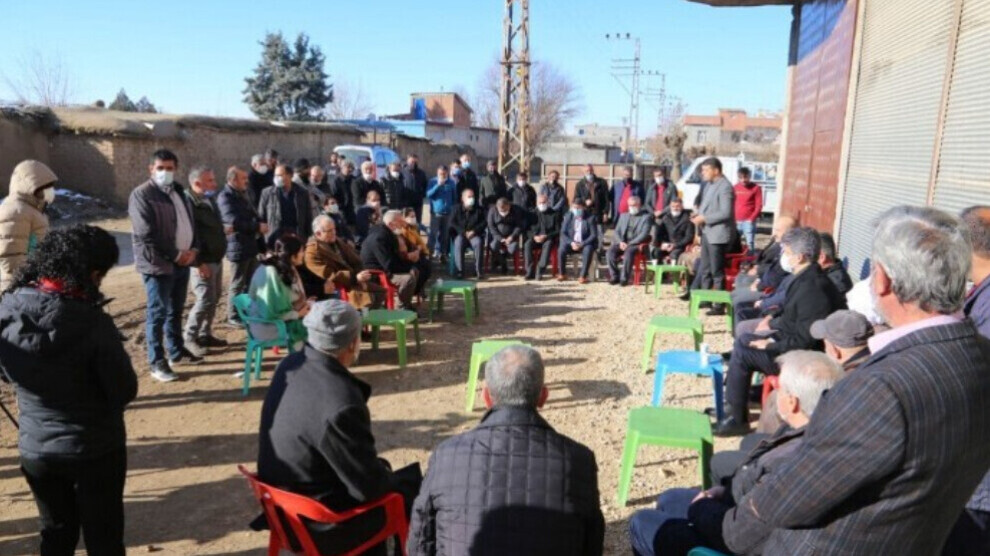Amed suffers increased unemployment due to crisis and Covid
HDP politician Şaziye Köse reported on the economic situation in Amed against the background of the pandemic and spoke of 30,000 new unemployed and over 1,100 shops that have gone bankrupt.
HDP politician Şaziye Köse reported on the economic situation in Amed against the background of the pandemic and spoke of 30,000 new unemployed and over 1,100 shops that have gone bankrupt.

The coronavirus pandemic acts as a catalyst for the economic crisis in Turkey and North Kurdistan. The second wave in particular hit people hard. During the quarantine period, almost every country in the world provided aid packages in support of the closed shops. Not Turkey, where shopkeepers were driven into asking for loans while the government did not shy away from collecting “donations” from the population for the pandemic. This exacerbated the crisis and caused the number of unemployed to skyrocket.
The HDP tried to reach the people in the regions through what it called “meetings for work and bread” where together solution strategies are developed. HDP politician Şaziye Köse, who specializes in labor and social affairs joined one of these meetings. In an ANF interview, Köse describes the situation.
"Much worse than we thought"
Köse says that although the economic crisis has been on everyone’s mouth for a long time, the picture that emerged from the meetings is much more dramatic: “We said from the start that the economic crisis had reached a much more dramatic scale due to the pandemic. With the work we started in Amed, however, we met with people and dealt with the consequences of this crisis in a more concrete and closer way. The picture which emerged from these meetings is worse than we thought. Amed, for example, has tragically something special: Youth unemployment here is three times higher than in other cities in Turkey. Unemployment is generally quite high, but is higher in Amed. Let me give you a concrete example: when we visited the Chamber of Artisans and Tradesmen's Association, we were given the following figure: 30,000 people have become unemployed. Coffee houses, cafes, bars and restaurants, where mainly young people work, have been closed. Over 1100 stores went bankrupt."
"Hunger is becoming a problem"
Köse continued: “We are faced with a serious picture. Farmers can no longer pay for diesel and fertilizer, and electricity and water have become very expensive. In addition, there is the electricity company DEDAŞ, which send out high electricity bills that the people in the villages cannot pay. People are broken, farmers' fields and tractors are being confiscated by bailiff. After these meetings we saw that the problem is very clear: it's called hunger! When you go to the region, you see the desperation because people are starving. That is why people now need concrete solutions."
Köse pointed out that traders have very specific demands: “It's clear that traders need support. This is what has been done in every country in the world, except here. We all know that the shopkeepers here have been plunged into debt under the guise of aid. These debts are increasing daily. Traders want the government to put together a support package for them and freeze their debts."
"We are not helpless"
Köse emphasizes that new areas of employment are needed in Amed. “During this time capital left Amed and its surroundings. When capital leaves there is a consequent lack of work. The unemployed ask first of all for possible solutions. They want concrete and clear advice, but we also have to say this: we are not helpless. I think unemployment is a system generated concept. The real question is the distribution of work."
"The solution lies in the common struggle"
The politician ended his remarks with the following thoughts: “Our meetings will continue. We met with traders, employees and people from many other areas of the society. With all these circles we decided to move on in order to continue the struggle for a concrete solution of the problems. It was more than a visit: it was the cornerstone for building common solutions.”